
Authors: Denise McCullagh, Anna Beswick, Stephen Jones, Jane McCullough and Jeremy Gault, December 2023
Year: 2023
The need for transformational climate adaptation that moves beyond the business-as-usual approach currently employed by a large majority of governments is becoming increasingly evident as the environmental, social and economic benefits of early and proactive adaptation are observed. The pressures of climate change require society-wide ownership of adaptation. However, for this to happen, all voices need to be represented in decision-making throughout the adaptation process. An assessment of the national climate adaptation policies of the five jurisdictions of Ireland and the UK was conducted to identify barriers and enabling conditions for adaptation in each of the jurisdictions.
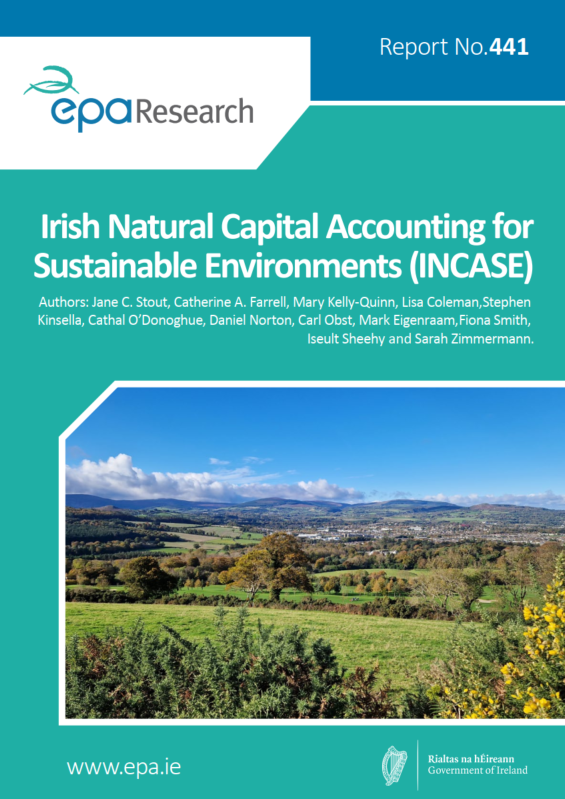
Authors: Jane C. Stout, Catherine A. Farrell, Mary Kelly-Quinn, Lisa Coleman,Stephen Kinsella, Cathal O’Donoghue, Daniel Norton, Carl Obst, Mark Eigenraam,Fiona Smith, Iseult Sheehy and Sarah Zimmermann., November 2023
Year: 2023
Nature continues to be degraded globally. Despite our societies and economies depending on it, we often ignore or undervalue this degradation. To bring nature into everyday decision-making, the natural capital approach deliberately uses the language of business and economics. In this context, nature can be thought of as an array of stocks of natural assets, incorporating biodiversity, air, water and geology. The condition of these stocks influences the flow of goods and services, and the benefits that our societies and economies derive from these assets. This EPA Research Report provides insights into the development of natural capital accounts at the catchment scale in Ireland. It aims to provide a comprehensive view of the stocks of natural capital assets and the flows of services, along with guidance on how to scale-up the process to national level.
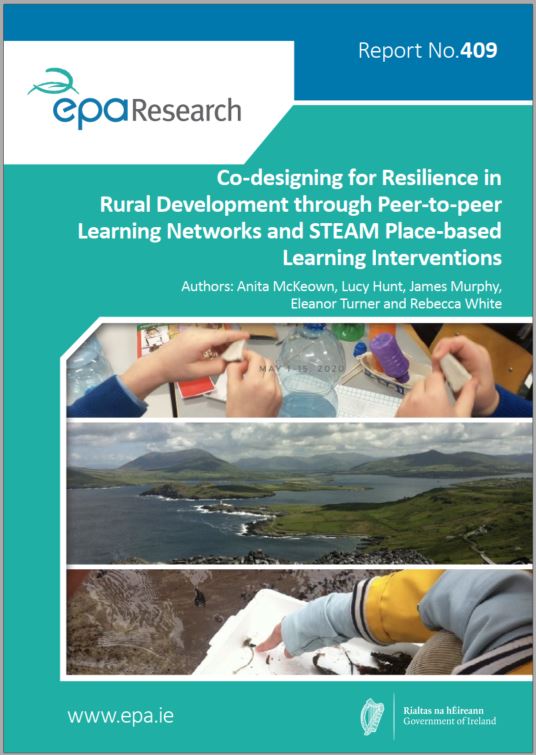
Authors: Anita McKeown, Lucy Hunt, James Murphy, Eleanor Turner and Rebecca White, May 2022
Year: 2022
The United Nations 17 Sustainable Development Goals (SDGs) and the 2030 Agenda for Sustainable Development require governments to take ownership and establish frameworks for the achievement of the 17 global goals. Ireland has mapped existing policies and programmes against each of the 169 SDG sub targets, setting out a roadmap for achieving the goals. CoDesRes developed and explored a series of proof-of-concept methods and from this created two toolkits. As interventions, the toolkits (community peer-to-peer learning and place-based STEAM education) localise the implementation of the SDGs and offer insights into adaptive opportunities to engage the public.
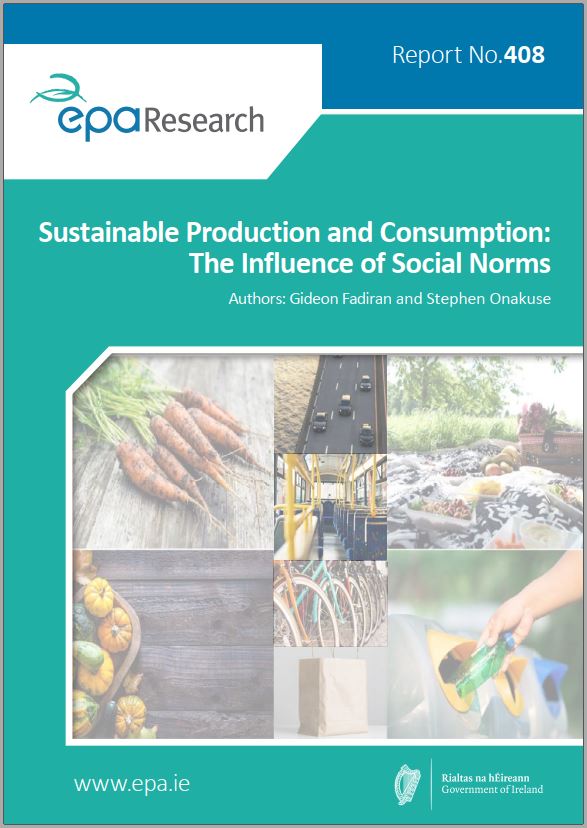
Authors: Gideon Fadiran and Stephen Onakuse, May 2022
Year: 2022
Consumer behaviour represents acts or decisions that influence the direction of production and consumption activities, which are, in turn, driven by household and, ultimately, economic activities. This research investigated the linkages between habits and norms that drive behavioural attitudes and preferences, and how consumers’ socio-economic background, community, beliefs, etc. are identified as the driving factors of consumer behaviour and waste patterns.
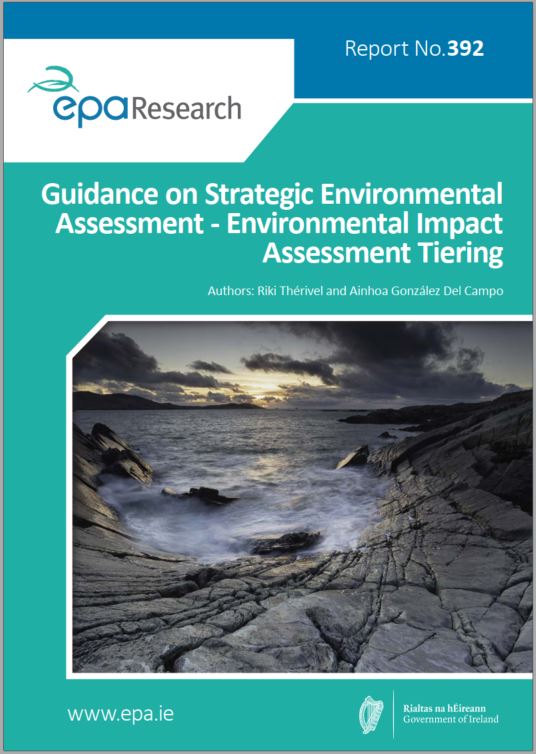
Authors: Riki Thérivel and Ainhoa González Del Campo, September 2021
Year: 2021
This Guidance on SEA-EIA Tiering aims to improve the links between SEA and EIA, using a range of good practice examples. It focuses on improving communication between SEA and EIA: getting SEA practitioners to write SEAs with EIAs in mind, and EIA practitioners to refer to SEAs in their EIA Reports. It also identifies institutional issues that can set a context which restricts tiering, including ‘silo assessment’, lack of training, and restrictive legal requirements.
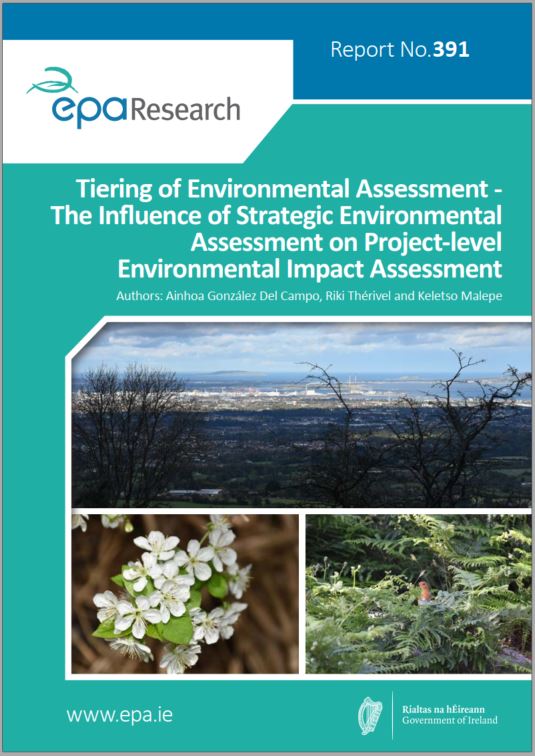
Authors: Ainhoa González Del Campo, Riki Thérivel and Keletso Malepe, September 2021
Year: 2021
Strategic Environmental Assessments (SEAs) aim to identify and mitigate environmental impacts resulting from the implementation of plans and programmes before they are adopted. This research was based on a literature review, interviews with 28 international and Irish experts, and a review of 19 Irish case studies. The research identified a range of good practice approaches to impact assessment tiering, which can be summarised as better communication between SEA and EIA practitioners.
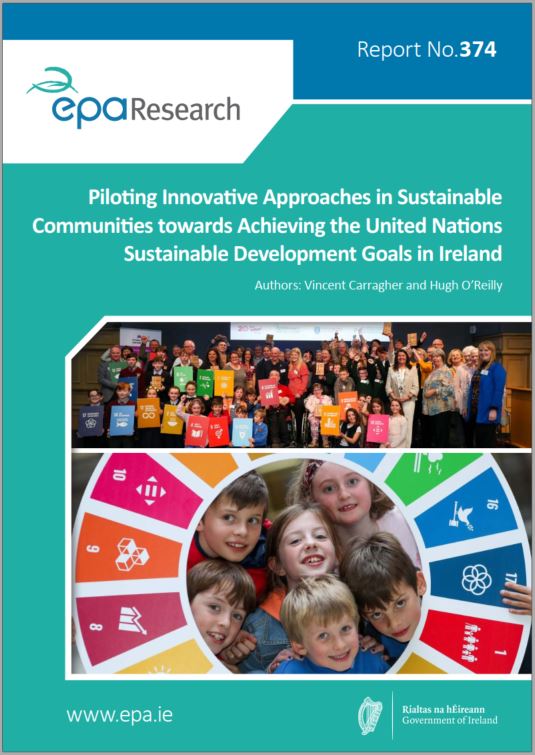
Authors: Vincent Carragher and Hugh O’Reilly, May 2021
Year: 2021
This study set out to catalyse the sustainability transition of communities using the United Nations Sustainable Development Goals (SDGs) as a framework. The research had a branded, public-facing campaign, Spark Change (www.sparkchange.ie), which recruited communities to an SDG challenge, effectively asking and supporting them to progress their sustainability transition and related SDG actions.
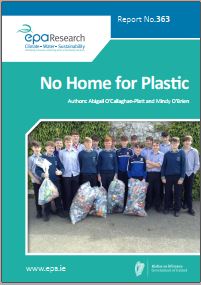
Authors: Abigail O’Callaghan-Platt and Mindy O’Brien, January 2021
Year: 2021
Plastic has become a ubiquitous material globally. Research quantifying the amount of plastic in the environment has prompted calls for action to tackle the use of this problem material. Aiming to reduce individual plastic consumption, this research revealed practical barriers to behaviour change including a lack of easy access to plastic-free options, the cost of plastic-free shopping and a lack of information on plastic-free options.
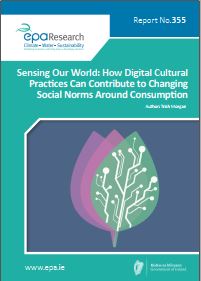
Author: Trish Morgan, November 2020
Year: 2020
This research project assesses the potential for novel cultural practices to communicate environmental data and issues to the public in Ireland against the backdrop of local and international environmental pressures. It makes recommendations towards developing solutions to the communication of environmental data to publics and developed a solution in the form of an online database of novel cultural practices.
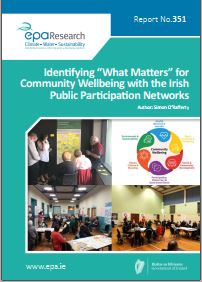
Author: Simon O’Rafferty, October 2020
Year: 2020
The Public Participation Networks (PPNs) were established through the 2014 Local Government Reform Act in order to “provide a mechanism by which citizens can have a greater say in local government decisions which affect their own communities”. This report presents the findings from an action research project in which a toolkit to develop visions of community wellbeing was co-designed with four PPNs.
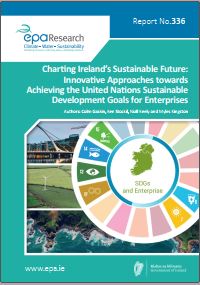
Authors: Colm Gaskin, Ken Stockil, Niall Keely and Myles Kingston, August 2020
Year: 2020
The Sustainable Development Goals (SDGs) are a call for change – a change to how we live, work, think and interact, both with each other and with our environment, to protect and secure our future and the future of the planet. This report captures the key recurring themes from Ireland’s engagement to date with the seven environmental SDGs and its role in supporting the private sector to deliver impactful contributions to these SDGs.
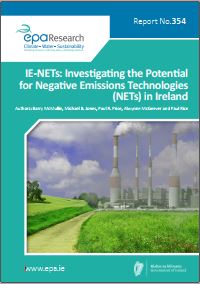
Authors: Bernadette O’Regan, Richard Moles, Rosemary Byrne and Anne Bennett, August 2020
Year: 2020
The need to involve voluntary communities at local level in the implementation of successful sustainable development programmes to achieve reductions in greenhouse gas (GHG) emissions is widely recognised. This research identified 36 Irish communities that were, or were actively planning to be, involved in local-scale action to enhance sustainability. Six of the 36 were selected for this research project.
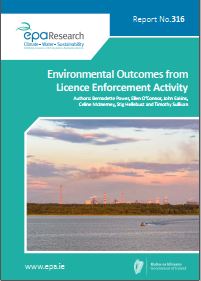
Authors: Bernadette Power, Ellen O’ Connor, John Eakins, Celine McInerney, Stig Hellebust and Timothy Sullivan, May 2020
Year: 2020
The ultimate objective of environmental regulation is the prevention and reduction of environmental harm from pollution, habitat loss and resource depletion. The findings from this research provide an update of current practices and recent changes introduced in some jurisdictions.
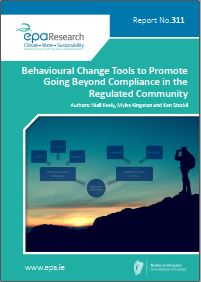
Authors: Niall Keely, Myles Kingston and Ken Stockil, April 2020
Year: 2020
The environmental compliance and enforcement landscape has evolved significantly over the last number of decades, with policy and legislation serving as a key driver. The nuances and complexities of compliance and enforcement have also evolved, as they now require a better understanding of the barriers and challenges, drivers and incentives, and the behavioural and contextual factors at play among regulated communities.
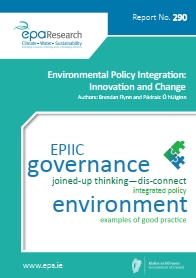
Authors: Brendan Flynn and Pádraic Ó hUiginn, September 2019
Year: 2019
The EPIIC (Environmental Policy Integration: Innovation and Change) project explored the relevance of environmental policy integration (EPI) for Irish environmental governance. EPI involves bringing environmental concerns into all other policy sectors, notably into agriculture, energy and transport.
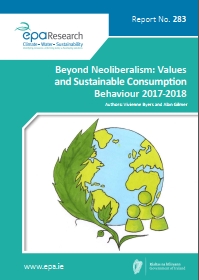
Authors: Dr Vivienne Byers and Dr Alan Gilmer, August 2019
Year: 2019
This desktop research project explores ways to advance understanding of the values and motivations that influence sustainable consumption behaviour in Irish society.
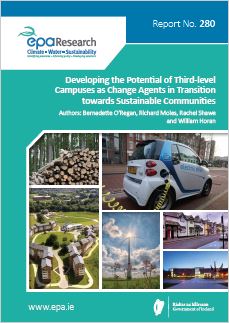
Authors: Bernadette O’Regan, Richard Moles, Rachel Shawe and William Horan, June 2019
Year: 2019
In relation to experimentation with, and demonstration of, novel management approaches and technologies designed to enhance sustainability, higher education institution (HEI) campuses have been identified as ideal testing grounds, as they embrace a diverse population and act as a microcosm of wider society, and control space for demonstration projects.
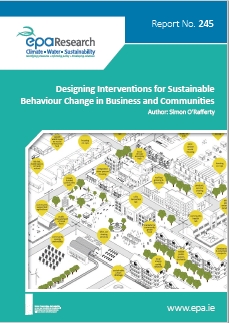
Author: Simon O’Rafferty, May 2018
Year: 2018
Sustainable consumption and production demands behaviour changes. Policymakers and regulators already apply a range of interventions and incentives with a view to changing individual and organisational behaviour. This includes fiscal incentives, subsidies, pricing mechanisms and market-based instruments, standards, eco-labels and communication, business support programmes and curriculum development.
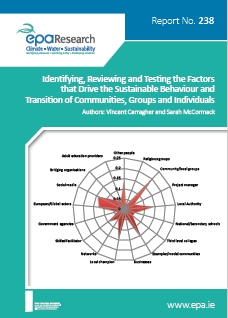
Authors: Vincent Carragher and Sarah McCormack, February 2018
Year: 2018
This research critically reviewed community interventions and sustainable-behaviour change programmes identifying drivers (enablers) adopted by those interventions. The aim was to distinguish key characteristics of success while also identifying barriers to sustainable transition and change.
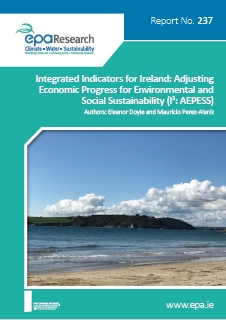
Authors: Eleanor Doyle and Mauricio Perez-Alaniz, January 2018
Year: 2018
Decoupling economic growth from environmental quality is an imperative for Ireland, as with other modern developed economies. Not only has economic growth been linked with environmental sustainability impacts, but more recently social sustainability has also been highlighted in terms of its relationship to, and impacts from, the economy.